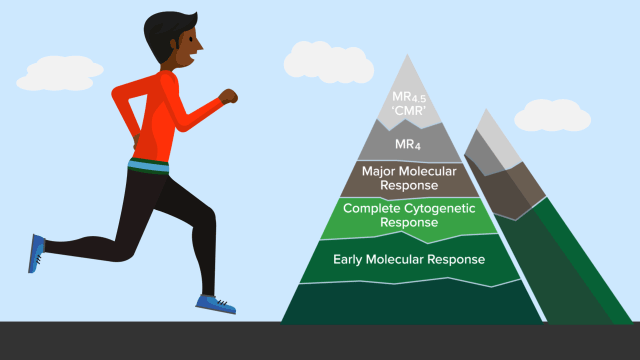
The number of people diagnosed and living with chronic myeloid leukemia (CML) continues to rise, but fortunately extensive research in this area has given doctors a better understanding of it. This has led to the discovery of several drugs that can effectively treat CML and as research continues in this area, with several new drugs in clinical trials, there is the potential for more options to become available in the future. Because of these advances, most people with CML are now living normal life spans.

To help find the right treatment for you, guidelines have been developed that allows your doctor to assign you a CML risk score, which is then used to guide your treatment. Despite this, there is no one-drug-treats-everyone approach to CML, but rather the treatment approach is unique to each person. To select the right one for you, it is important to work with your doctor to determine the treatment approach that best meets your needs.

The management of CML is similar to running a marathon, it is a long slow process that requires you to be strong, resilient, and patient. Throughout your treatment, doctors monitor you closely for several key responses, including the early molecular response, complete cytogenetic response, deep molecular remission, and for some patients, completely undetectable PCR levels. Achieving these goals within well-established time frames has been linked to positive outcomes.


During treatment, you may experience a number of different side effects from your medication. Your doctor will follow you closely for signs of any drug-related problems, but it is important to openly communicate with your doctor about any problems you experience so that you can work together to manage these side effects. Fortunately, many of these problems are treatable, but on occasion it may be required to change the drug that you are using to treat your CML.
Discontinuing
medication is possible
Doctors are now beginning to understand that under the right circumstances, some people can safely come off of their medication without having their CML return. Current guidelines only recommend this for people who meet very strict selection requirements and remain under the close supervision of a doctor, who will need to perform rigorous monitoring.
